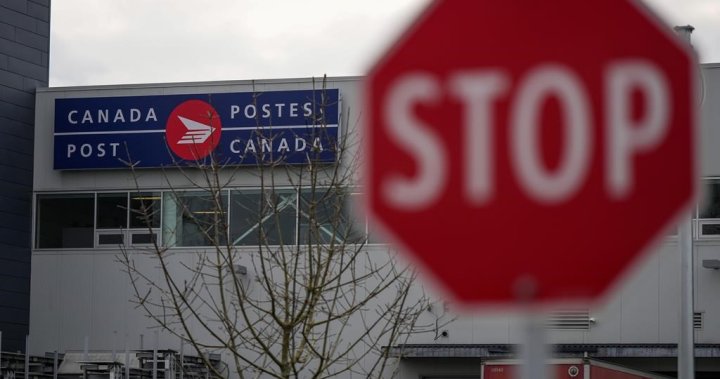The labor dispute between Canada Post and the Canadian Union of Postal Workers (CUPW) has reached a critical juncture, nearing the four-week mark with no resolution in sight. The two sides remain entrenched in their positions, with the latest round of offers and counter-offers seemingly widening the gap rather than bridging it. Canada Post has expressed deep disappointment with the union’s latest proposals, characterizing them as a step backward in the negotiation process. They contend that while they have made significant concessions, including increased wage offers and enhanced benefits, the union has reverted to previous demands or even increased them. This impasse has cast a shadow over the hopes for a swift resolution, leaving businesses, charities, and communities across the country, particularly in northern regions, facing continued disruptions.
Canada Post emphasizes its precarious financial situation, projecting a seventh consecutive annual loss. This financial reality underscores the company’s assertion that it must balance its commitment to employees with its long-term sustainability. They highlight the improved offer, which includes wage increases surpassing previous proposals, up to seven weeks of vacation and 13 personal days for full-time employees, and a defined benefit pension plan with annual cost-of-living adjustments for pensioners. The corporation believes these offers represent a substantial effort to address the union’s concerns while maintaining financial responsibility. However, the union’s response suggests a different perspective, claiming that Canada Post’s proposals are insufficient and fail to address core issues.
The Canadian Union of Postal Workers (CUPW), on the other hand, argues that Canada Post has not engaged in good-faith bargaining. They maintain that the company’s proposals lack depth and introduce new demands that hinder progress. The union’s revised proposals include wage increases, a cost-of-living allowance, ten additional medical days beyond the existing seven personal days, and specific provisions for rural and urban workers. For rural and suburban workers, they propose corporate vehicles, while urban part-time employees would be guaranteed a minimum 20-hour work schedule. The union believes these proposals address the specific needs of different worker groups and reflect the current economic realities.
The ongoing strike has had a significant impact on Canadians, disrupting essential services and creating uncertainty for businesses and charitable organizations that rely on reliable mail delivery. The federal government, while acknowledging the disruptions and the importance of a resolution, has maintained its position of non-intervention, emphasizing that negotiated agreements are the most effective and sustainable solution. Labor Minister Steven MacKinnon reiterated this stance, urging both parties to return to the negotiating table and work diligently towards a mutually acceptable agreement. This hands-off approach reflects the government’s belief that direct intervention could further complicate the negotiations and potentially hinder the long-term relationship between the parties.
As the strike enters its fourth week, the pressure mounts on both sides to find common ground. The economic implications for Canada Post, the disruption to essential services for Canadians, and the strain on the relationship between the corporation and its employees underscore the urgency of reaching a resolution. The next steps in the negotiation process will be critical in determining whether the parties can bridge the divide and find a path forward. The potential for further escalation, including legislative intervention, remains a possibility if the impasse persists.
The core issues in the dispute revolve around wages, benefits, and working conditions. The union is seeking improvements that reflect the rising cost of living and address the specific challenges faced by different worker groups. Canada Post, while acknowledging the need to address employee concerns, must also navigate its challenging financial situation. Finding a balance between these competing interests will be key to resolving the dispute and ensuring the long-term viability of the postal service. The continued disruption underscores the importance of finding a resolution that addresses the needs of all stakeholders, including employees, customers, and the corporation itself.










